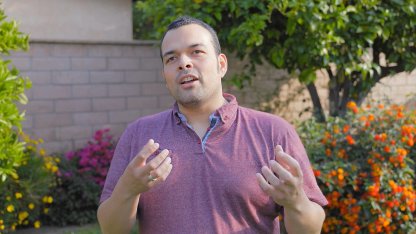Reimagining How to Preach
When King Solomon first ascended to the throne, he didn't ask for wealth, honor, long life or the death of his enemies; he asked for wisdom. This question pleased God because it revealed his humble heart (1 Kings 3:10; 2 Chronicles 1:11). So often our questions reveal the inclinations of our hearts. And we truly learn when not just our minds but our hearts are affected.
Participants at a recent preaching workshop in West Des Moines, Iowa asked questions that revealed this sort of learning—learning that grew out of their experiences in life.
One pastor from Liberia shared his memories of how it felt to buy bread in Muslim-controlled Guinea before coming to the US. Because he was a Christian and spoke a different language, he had to pay ten times more than the Muslim right in front of him.
Another pastor from the Democratic Republic of the Congo mentioned the struggles of living in a refugee camp for over ten years, but also the joy of planting churches during that "exile." In many ways that exile continues today. He yearns to minister to God's people in the US and also in central Africa, returning annually to care for the churches he planted.
These African pastors bring unique perspectives and experiences to their interpretation of Scripture, and that is a blessing to all the workshop participants. Their questions are an even greater blessing. Reflecting on Jesus's call to suffer in Mark 8:34, one pastor asked if each person has a different type of suffering, a different type of "cross" to bear. Another later said, "Jesus says in Mark 10:40, 'to sit at my right hand or at my left is not mine to grant but it is for those for whom it has been prepared.' Does that mean there is a special place in God's kingdom for certain people? If so, who sits in that place?" A third wondered, "Why did the women go to the tomb early on Sunday morning and not the men in Mark 16:1–3? Where were the men? Did the women actually believe that Jesus was going to resurrect?"
One pastor asked a question that stood out. It revealed his desire to keep learning. He'd told us he preaches by focusing on a word or theme from several Bible passages after praying about what God wants him to say. But this time he wondered, "I've heard of pastors preaching through entire books of the Bible in a series. What do you think of that?" Preaching through books of the Bible has many benefits—it glues each sermon to the author's message, leads pastors to preach "the whole council of God" (Acts 20:27), and helps to avoid certain kinds of interpretive error. This idea had grown out of this pastor's own observation as he began to reimagine his strategy and preparation for preaching. May God be pleased with the inclinations of our hearts as we all reimagine how to preach faithfully.



